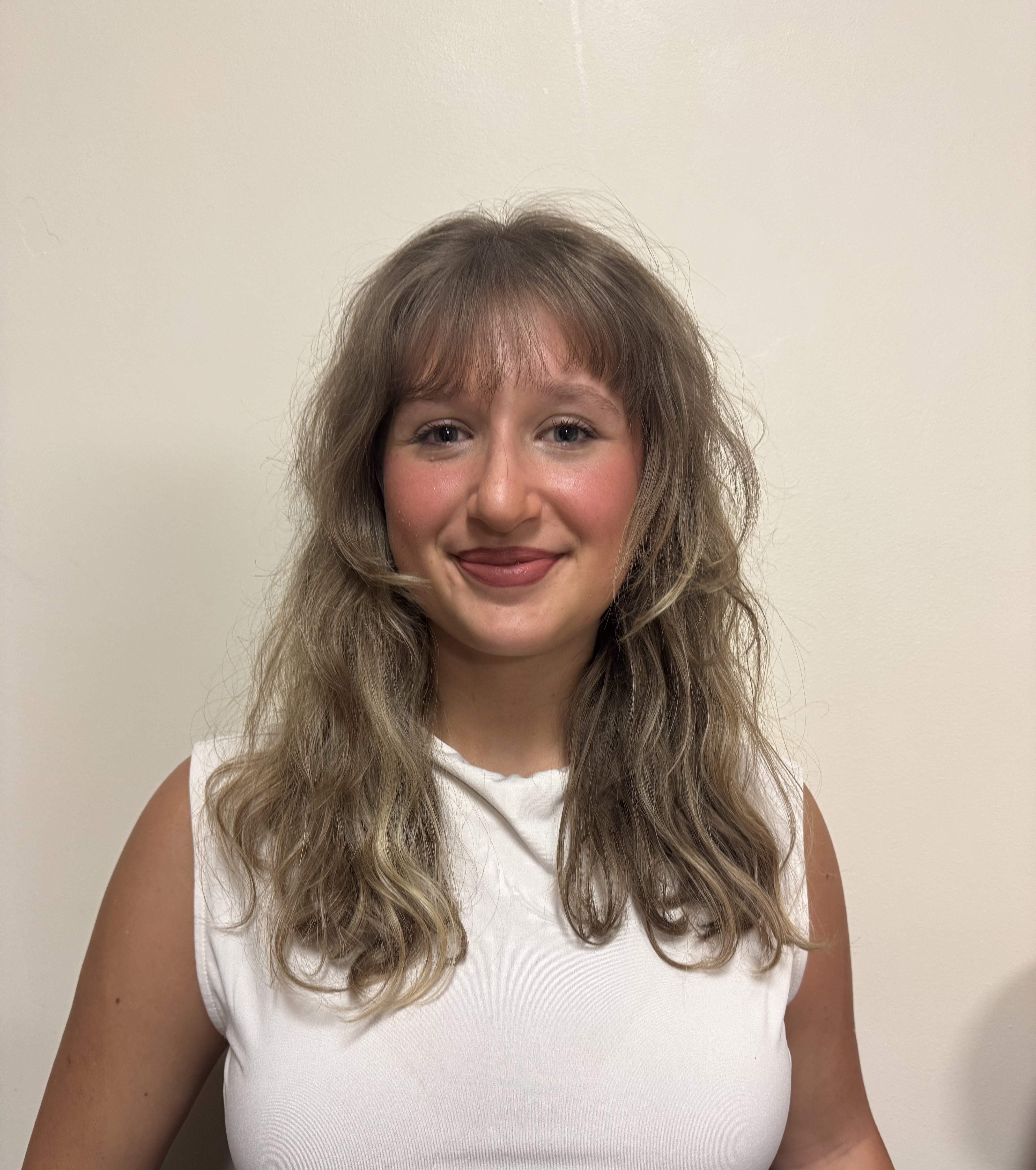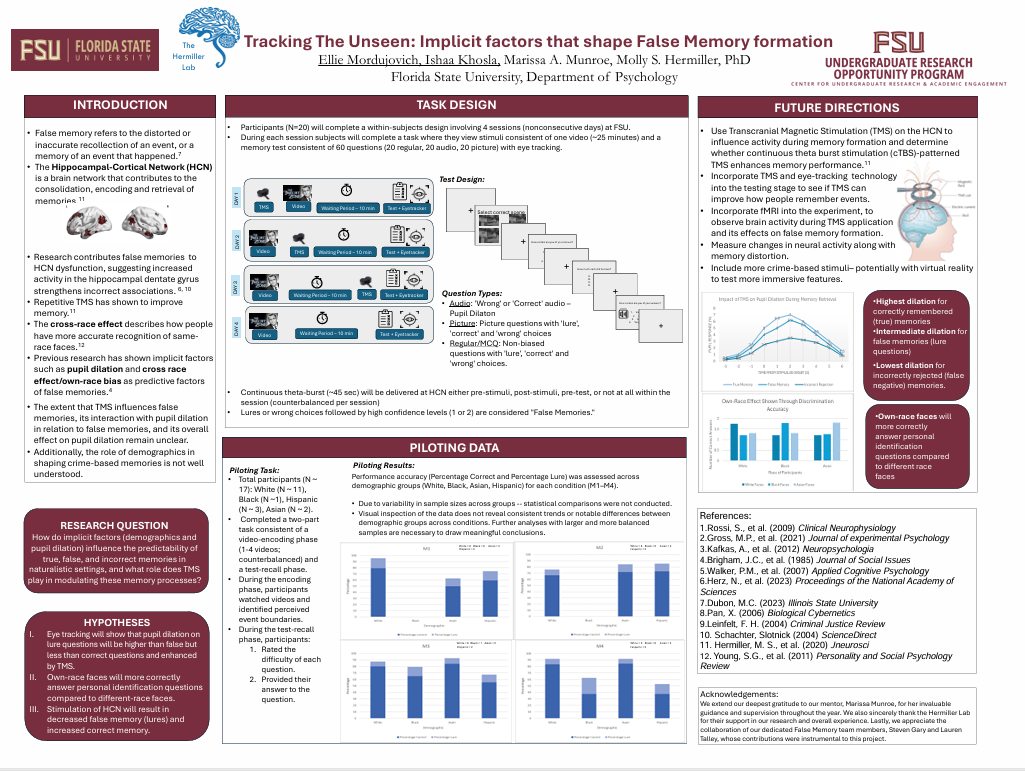Research Symposium
25th annual Undergraduate Research Symposium, April 1, 2025
Ellie Mordujovich Poster Session 3: 1:45 pm - 2:45 pm/ Poster #78

BIO
My name is Ellie Mordujovich, and I am a first-year Psychology major from Gainesville, Florida. I'm on a pre-med track with the goal of becoming a psychiatrist, and I have a strong passion for the healthcare field. I'm especially fascinated by human behavior and love exploring why people think and act the way they do, which is what drew me to research. Outside of academics, I love listening to music, hiking, and talking to people.
Tracking the Unseen: Implicit Factors that shape False Memory formation
Authors: Ellie Mordujovich, Marissa MunroeStudent Major: Psychology
Mentor: Marissa Munroe
Mentor's Department: Psychology Mentor's College: College of Arts and Sciences Co-Presenters: Ishaa Khosla
Abstract
False memory is defined as the distortion of certain events leading to a false recollection of memory. This research study aims to investigate implicit factors that may influence the encoding and retrieval of false memories. Additionally, it will explore how non-invasive brain stimulation can modulate false memory formation and recall. We are examining implicit factors such as demographic influences and pupil dilation measured through eye tracking. Within demographic research proposes a theory known as ‘own-race bias’ explaining that those who identify most with the people in stimuli will more accurately identify people of their own race compared to other-races. Research has shown that pupil dilation can be a potential identifier between false and correct memories. In this study, we will use noninvasive brain stimulation—transcranial magnetic stimulation (TMS)—to modulate the hippocampal-cortical network (HCN), a key system involved in memory encoding and consolidation. Our task includes a naturalistic stimuli phase (a video) and a test phase (multiple choice, audio, visual questions). TMS will be delivered at the left parietal cortex – which indirectly increases the HCN – pre-video, post-video, pre-test, or none to potentially increase accuracy with questions.We hypothesize that TMS will diminish own-race bias and increase recall accuracy. Prior to running the full study we conducted a pilot study which tested the difficulty of the questions we will use in our simulation-based study. Results from this study will increase our understanding of false memory and provide insight as to how implicit factors play a role in the encoding of those memories.
Keywords: Memory, TMS, Demographics, False Memory


